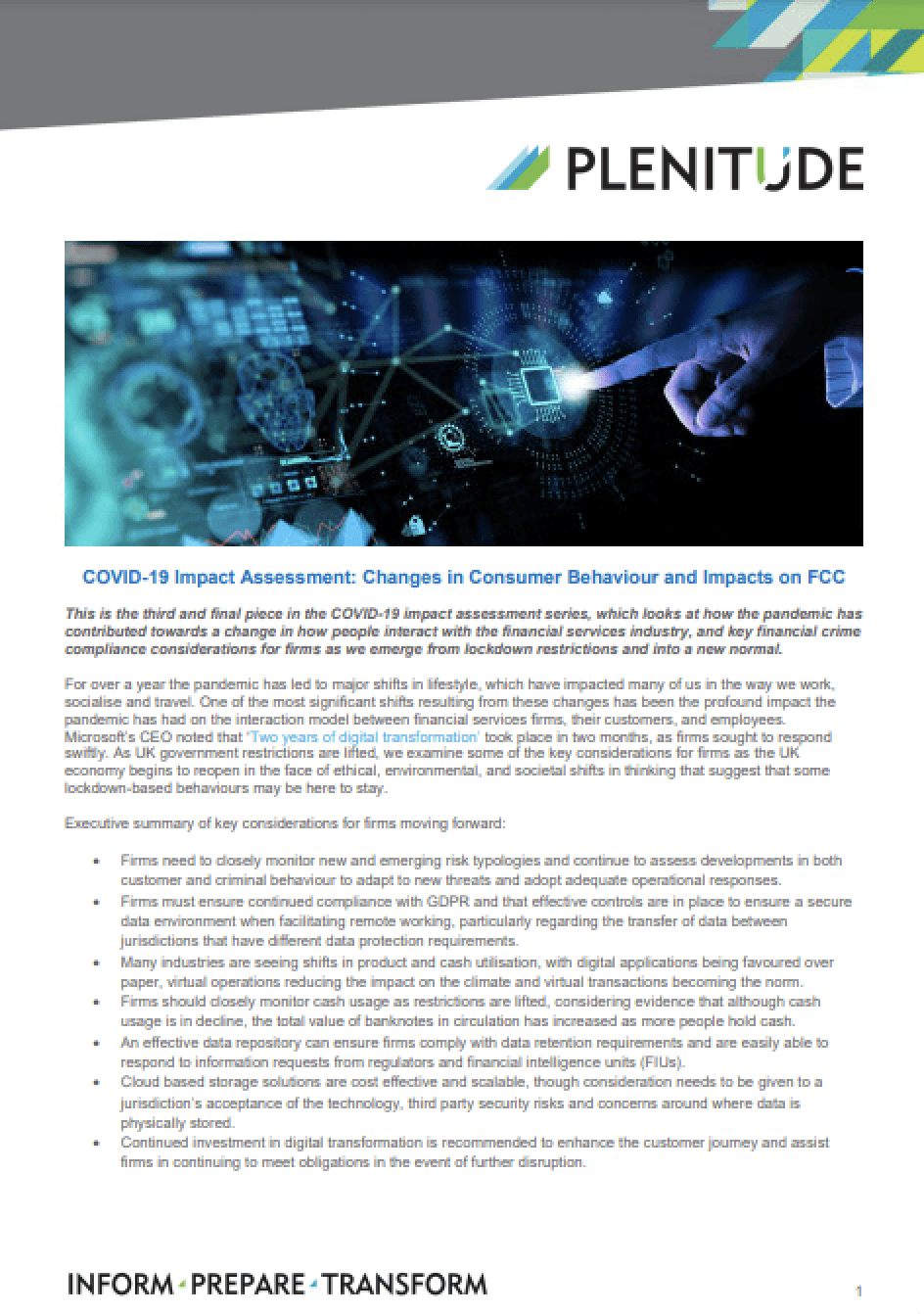As UK government restrictions are lifted, we examine some of the key considerations for firms as the UK economy begins to reopen in the face of ethical, environmental, and societal shifts in thinking that suggest that some pandemic-based behaviours may be here to stay.
For over a year the pandemic has led to major shifts in lifestyle, which have impacted many of us in the way we work, socialise and travel. One of the most significant shifts resulting from these changes has been the profound impact the pandemic has had on the interaction model between financial services firms, their customers, and employees. Microsoft’s CEO noted that ‘Two years of digital transformation’ took place in two months, as firms sought to respond swiftly. As UK government restrictions are lifted, we examine some of the key considerations for firms as the UK economy begins to reopen in the face of ethical, environmental, and societal shifts in thinking that suggest that some lockdown-based behaviours may be here to stay.
Conclusion
As we slowly emerge from lockdown restrictions and adjust to a new form of normal, it is likely that we will witness a period of transition where old and new behaviours merge into a new hybrid way of living. This will impact not only on the way we work but in the way we continue to interact with the financial services industry, and firms should continue to monitor developments and seek to identify emerging risks and threats. Indeed, recent studies indicate that most workers are unwilling to return to pre-pandemic ways, whilst experts have mixed opinions on the ‘new normal’ and COVID-19’s long-term impact on society. FATF’s call for coordinated responses across the financial service industry to identify and manage new risks as they develop should continue so that firms are best prepared for the potential challenges that lay ahead.



 Kelly Burgess
Kelly Burgess
 Nick Charlton
Nick Charlton
 Plenitude Insights
Plenitude Insights Fraud
Fraud Advisory and Transformation
Advisory and Transformation



